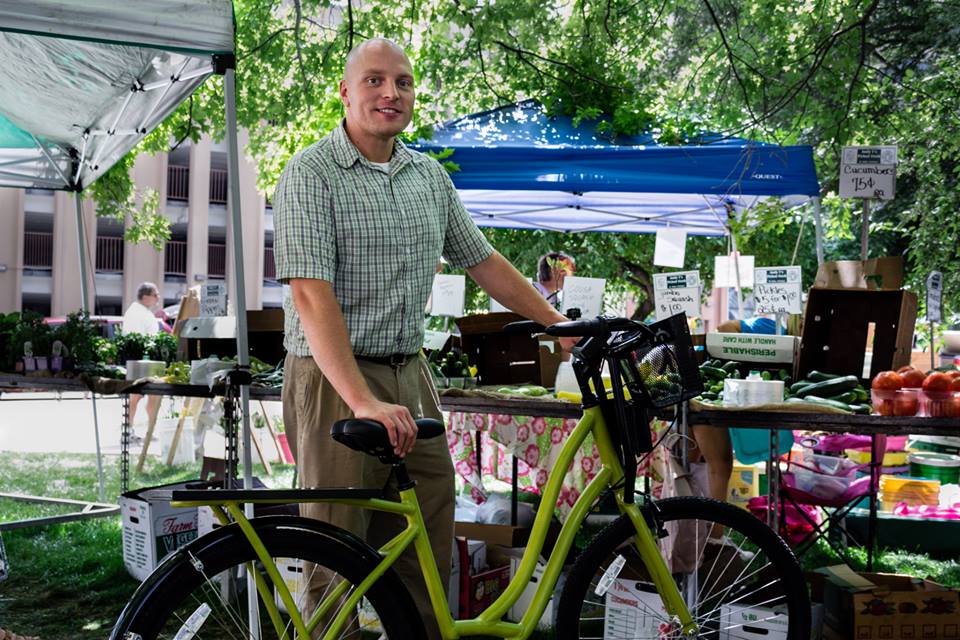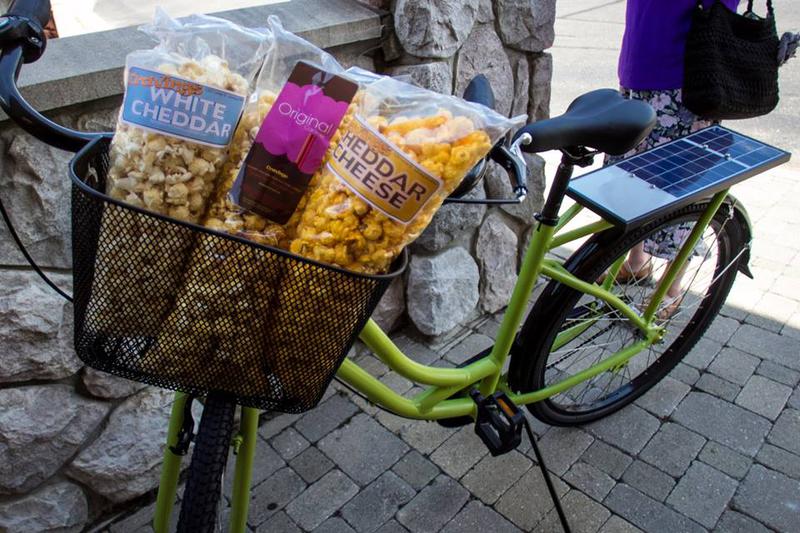In December, Ansgar Strother, 21, will graduate from the University of Michigan with a bachelor’s degree in computer engineering, but he won’t be looking for a job when he graduates.
That’s because he is already applying his skills by launching his own company, A2B Bikeshare, with partner Keith Porter, also 21. The pair developed a bikesharing system with a “smart bike, dumb rack” concept that reduces costs by as much as 60% over existing systems on the market. The pair developed their concept as part of a college entrepreneurship class at the University of Michigan.
Shareable: How did you get started with this bike-sharing venture?
Strother: There is a class [at U of M] called Entrepreneurship 411, which teaches you customer discovery, how to identify where there is a real pain point in the market, and how you can start to address a solution to that. I was in that class with my friend and co-founder Keith Porter, and as we were working through that class, we had a big list of ideas, and bike sharing was on the list. And when we started to talk to people, bike sharing really resonated with people. They thought it was a great idea and something that was making a better world, but also making their lives more convenient. It helps the environment while making people’s life better. So people got really excited about that.
So we started looking into that more and as we were talking to people, we quickly found out that the true pain point was that bike sharing needed a better hardware and software solution. The current solutions on the market were really expensive, costing from $4000-$6000 per bike, communities couldn’t afford that, and the user experience wasn’t that great.
Shareable: What were some other “pain points” in the user experience in other bike sharing systems you looked at?
Strother: There were a couple issues. When you go up to get a bike, you have to go up to this clunky kiosk, and there are other people waiting, so you have to wait in line, you pay, and the kiosk releases a bike. So not terrible, but not super-intuitive.
Then there is a real issue when you’re actually riding. Say I want to lock up somewhere, I have to remember a map in my head of where exactly the next kiosk location is. People can generally remember a single station location; the issue is that when you arrive, if that rack is now full, you’re going to be sent to another rack, and I’ve heard stories of people getting sent to 3 or 4 racks, because they are all just full in an area.
So it’s not really a great user experience where it’s not super-easy to use, not super-quick, kind of complicated, and you need to be a little bit lucky to be able to return a bike sometimes.
Shareable: How is A2BBikeshare’s solution improving on the user experience?
Strother: Our technology is focused on making the bike smart and the rack dumb, because when we were doing our research we realized the lion’s share of the cost was with these really complicated kiosks, and furthermore, it’s the bikes you actually care about.
So by making the bikes smart, with a very intuitive touch-screen interface on the bike where you can log in right away, unlock and go, and while you are riding you can make use of things like maps to help guide you to a rack location and make sure that is available for you. Then we also have other features to help you explore communities through tours, to help you find places to eat, and really help you engage with and explore the community around you.
Shareable: Do you still need to lock into a designated rack with your technology?
Strother: Yes. There is a lock module on the front of the bike that locks into a dumb rack, so it clicks in securely. So you can have all of the safety, security, branding and structure of a more expensive system, but at a much lower cost.
Shareable: What is the cost of A2B Bikeshare’s solution?
Strother: The price is $2,000 per bike and that includes everything- bike, locking module, and touch-screen interface. The software on the bikes is automatically updated as the bikes communicate directly with our server.
Shareable: Where have you implemented your solution?
Strother: We are currently working with the City of Lansing, where we are rolling a 20-bike pilot system out that will hopefully lead to a much larger system in 2014. We are also looking at gearing up for production and will be looking to roll out into more cities 2014.
Shareable: What are your plans when you graduate in December?
Strother: We plan to launch A2B Bikeshare as our business. I came up with the concepts for the technology and we have a very strong team of seven people who made it happen. We are working to determine how much we can do ourselves and where to partner with local manufacturers.
 Ansgar Strother with the new A2B smart bike for low cost bikesharing. Source: A2B Bikeshare
Ansgar Strother with the new A2B smart bike for low cost bikesharing. Source: A2B Bikeshare









